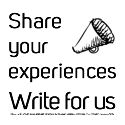Consultive Magazine’s Guide to Socialising
By Mike. October 22nd, 2010. Posted in Off assignment No Comments »
Moderating your alcohol intake and following the examples of others can save you a lot of problems during your early consulting career.
The average consultant is expected to drink. This is the typical outlook you will find in most consultancies today. By drink, I really mean socialise. It just so happens that these social activities usually take place in the most convenient locations outside the office, which tend to be pubs and bars.
This is not to say that consultants are alcoholics, far from it, most are very sensible about their alcohol intake and will only drink when not burdened with work the following day. But once you have been invited to a pub or bar by clients or colleagues, how do you behave? Who buys the first round, what is the social etiquette?
Here are some tips for staying the right side of this social hurdle:
1. Watch and learn from others (ideally of a similar rank)
Watching how others behave in these situations can save all sorts of embarrassing problems. It often pays to observe the behaviour of someone else of a similar rank to yourself (or even slightly above) at least until you know the SOP (Standard Operating Procedure).
For example, walking up to the bar and ordering a pint/glass of wine may seem sensible enough, but if everyone else subsequently orders orange juice you may find yourself somewhat embarrassed and possibly frowned upon. You are be better off either a) waiting for someone else to order a drink, or b) offering to buy the first round and therefore seeing what other people are having before choosing your own drink.
If you see someone buying a round for the senior management or client, it wouldn’t hurt if that was you next time. Very few teams would expect the new person to be the first at the bar, but it shows a good team spirit to at least offer at some point, even if you expect it to be declined. Even if you are not drinking alcohol at all, buying a round is still good practice and shows willing to be a team player.
2. Stay in Control
This sounds obvious, but things can get out of hand quickly if you are not used to a more formal drinking environment (e.g. with clients or senior management). Knowing your limit and sticking to it is the best way of ensuring you don’t attract the wrong type of attention from colleagues and clients.
Getting caught in big rounds is by far the easiest way to the bosses office in the morning to explain why you felt that your shirt looked better open and that “badger” needed to be shouted at high volume before leaving the pub. Try and keep to rounds of three or four people as this makes it a little easier to bug out early or make every third or fourth drink a little less alcoholic.
This rule supersedes rule 1, so even if everyone else is “going for it”, you might want to take a step back to retain a certain level of control. It never hurts to be the one who can remember stuff the others can’t and taking the pictures later on is a lot better than being in them. Think about it.
3. Make sure you get involved
Despite the potential pitfalls of drinking with colleagues and / or clients there are many, many more potential benefits. There’s no substitute for the Monday morning catch up with your team to talk about the Friday night team social. Spending time with your colleagues and clients outside of the office environment gives you a chance to get to know them in more relaxed surrounds, to find out who their favourite team is, if they even like football, to get to know the person and people you are working with. This can only benefit your working relationship and make the team stronger and more fun to work with.
Summary
These are not hard and fast rules, just guidelines to help you avoid the most obvious pitfalls and to, hopefully, help you get the most benefit from your team outings. In some situations it can be a benefit to be the ringleader encouraging the festivities, but this comes with experience.
Please note: The idea here is not to suggest anyone should or should not drink alcohol, merely to help you manage your chosen behaviour.





